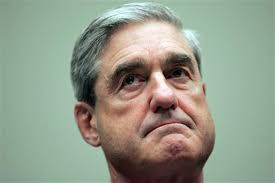A U.S. judge on Thursday ordered the Obama administration to release another Kuwaiti detainee held at the controversial U.S. military prison at Guantanamo Bay, Cuba.
Judge Colleen Kollar-Kotelly ordered that Fouad Al Rabiah be released from the detention facility where he has been held for more than seven years on charges of conspiracy and providing material support to the Taliban and al Qaeda.
U.S. judge orders Kuwaiti held at Guantanamo freed
FBI chief vows to protect terror detainees from rendition
 Signaling a shift in the U.S.'s handling of overseas interrogations, FBI director Robert Mueller reassured Democratic lawmakers Wednesday that his agents would never turn over detainees to the CIA for rendition, despite the bureau's heightened role in the questioning of terrorism detainees.
Signaling a shift in the U.S.'s handling of overseas interrogations, FBI director Robert Mueller reassured Democratic lawmakers Wednesday that his agents would never turn over detainees to the CIA for rendition, despite the bureau's heightened role in the questioning of terrorism detainees.
In creating a new interagency group that manages interrogations, the Obama administration has handed the FBI more control in the questioning of high-value detainees, a decision that's diminished the CIA's central role.
CIA Experiments on US Soldiers Linked to Torture Program
 A number of new reports have, in recent weeks, highlighted evidence of illegal human experimentation on US-held "terrorism" prisoners undergoing torture. Those reports come on the heels of a "white paper" by Physicians for Human Rights (PHR), "Aiding Torture: Health Professionals' Ethics and Human Rights Violations Demonstrated", in the May 2004 inspector general's report.
A number of new reports have, in recent weeks, highlighted evidence of illegal human experimentation on US-held "terrorism" prisoners undergoing torture. Those reports come on the heels of a "white paper" by Physicians for Human Rights (PHR), "Aiding Torture: Health Professionals' Ethics and Human Rights Violations Demonstrated", in the May 2004 inspector general's report.
U.S. Gives New Rights To Afghan Prisoners
 Hundreds of prisoners held by the U.S. military in Afghanistan will for the first time have the right to challenge their indefinite detention and call witnesses in their defense under a new review system being put in place this week, according to administration officials.
Hundreds of prisoners held by the U.S. military in Afghanistan will for the first time have the right to challenge their indefinite detention and call witnesses in their defense under a new review system being put in place this week, according to administration officials.
The new system will be applied to the more than 600 Afghans held at the Bagram military base.
Court dismisses Iraqi contractor torture case
A federal appeals court on Friday dismissed a lawsuit against two U.S. defense contractors by Iraqi torture victims, saying the companies had immunity as government contractors.
The lawsuit was filed in 2004 on behalf of Iraqi nationals who say they or their relatives had been tortured or mistreated while detained by the U.S. military at the Abu Ghraib prison.
More...
TVNL Comment: Contractors had immunity, but not an iota of accountability. They hate us for our freedoms. Yeah, right.
Algerians, freed from Guantanamo, still paying the price
 Seven months after his release from Guantanamo Bay, Mustafa Ait Idr cautiously sips coffee in a Sarajevo cafe. His face is still partially paralyzed and numb from when guards pinned him onto gravel and jumped on him. He is nursing a broken finger — punishment for refusing to strip naked in his cell. On another occasion, his head was held in a toilet for prolonged periods of time.
Seven months after his release from Guantanamo Bay, Mustafa Ait Idr cautiously sips coffee in a Sarajevo cafe. His face is still partially paralyzed and numb from when guards pinned him onto gravel and jumped on him. He is nursing a broken finger — punishment for refusing to strip naked in his cell. On another occasion, his head was held in a toilet for prolonged periods of time.
Now a free man, Ait Idr proudly displays his Bosnian ID Card, which was only recently reinstated. He is still unable to find employment or access his bank account.
Israel's laws of persecution
Israel is using the country's legal system to segregate and penalise its Palestinian citizens and prohibit Arab dissent
Two cases brought before Israeli courts last week revealed the attitude of the establishment towards Palestinian Arab citizens of the state. One shows how Palestinian citizens are treated as victims of police brutality, and the second shows how they are regularly victimised because of their opposition to injustice.
More Articles...
Page 132 of 198

 Human Rights Glance
Human Rights Glance






























